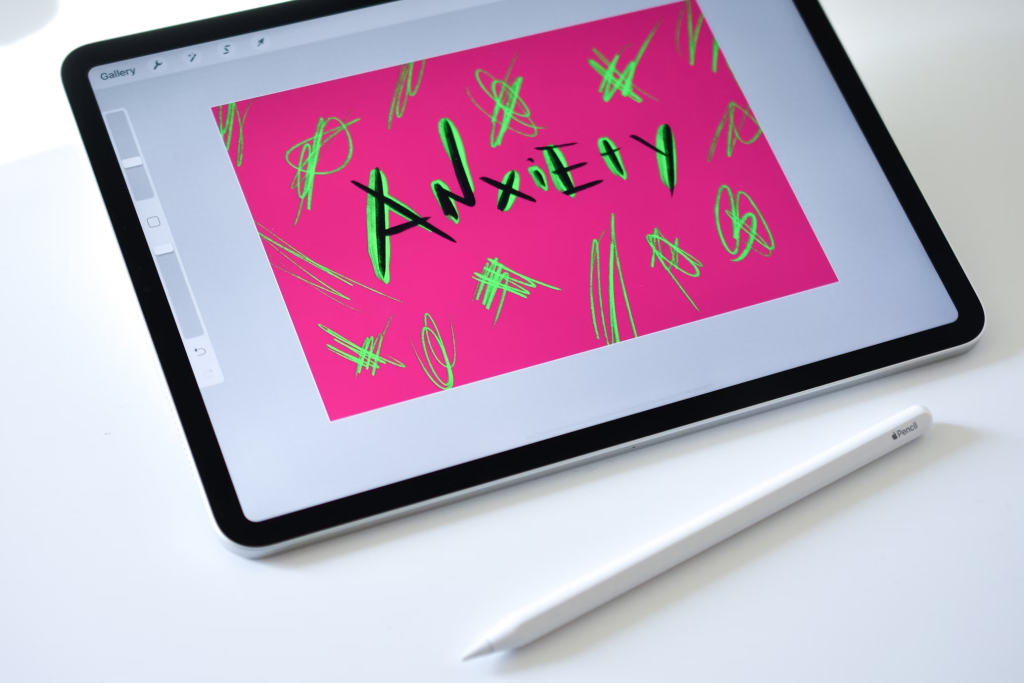In today’s fast-paced world, stress and anxiety are all too common. Whether you’re balancing work, family, or personal goals, the constant pressure can be overwhelming. However, managing stress is both possible and essential for your well-being. With a few practical changes, you can improve your mental and emotional health. This article shares ten simple strategies to help reduce daily stress and anxiety.

- Practice Mindful Breathing
One of the most effective techniques to ease anxiety is mindful breathing. Specifically, deep breathing calms your nervous system and promotes mental clarity. For example, try box breathing: inhale for four seconds, hold for four, exhale for four, and pause for another four.
Why it works: a study in Frontiers in Human Neuroscience found that breathing exercises can lower cortisol, the hormone linked to stress. - Incorporate Physical Activity
Physical activity is not only good for your body but also essential for mental well-being. Even so, you don’t need an intense workout to benefit. In fact, a 20-minute walk or gentle yoga session can help reduce stress by releasing endorphins. Moreover, exercises like tai chi combine mindfulness with movement, offering added benefits.
Why it works:
Physical activity reduces stress-related hormones like cortisol and adrenaline while increasing feel-good chemicals in the brain. - Limit Screen Time
Too much screen time—especially social media—can raise stress levels. The constant notifications and comparisons may leave you feeling overwhelmed. Therefore, setting screen limits or using monitoring apps can give your mind the break it needs.
Why it works:
Research in The Journal of Social and Clinical Psychology shows reduced social media use improves mood and well-being. - Prioritize Sleep
Getting enough sleep is essential for mental health. Without it, your ability to handle stress diminishes. To improve sleep, try creating a consistent bedtime routine, reducing caffeine, and keeping your bedroom cool and quiet.
Why it works:
The National Sleep Foundation reports that quality sleep improves mood and decreases the body’s stress response.
5. Practice Gratitude
Taking time to focus on what you’re thankful for can shift your mindset. For instance, jotting down three positive things each day helps train your brain to notice the good. Over time, this habit builds emotional resilience.
Why it works:
Studies show that practicing gratitude consistently lowers stress levels and builds emotional resilience.
6. Explore Creative Outlets
Creative activities like painting, writing, or playing music provide an emotional release. Instead of bottling up stress, you can channel it into something expressive. Moreover, creative hobbies help you stay present and mindful.
Why it works:
Creative expression helps people stay in the present and relieve mental tension, according to research.
7. Stay Connected
Maintaining close relationships is vital for emotional support. When you’re feeling overwhelmed, talking with a friend or family member can help you gain perspective. Additionally, spending time with pets can also lower stress.
Why it works:
A study in Psychological Science shows strong social ties reduce the physical effects of stress.
8. Set Boundaries
Taking on too much often leads to burnout. That’s why setting clear boundaries is essential. By saying no when needed, you protect your time and energy—both critical for mental health.
Why it works:
The American Psychological Association reports that healthy boundaries reduce overwhelm and improve emotional health.
9. Try Aromatherapy
Aromatherapy is a gentle yet effective way to reduce anxiety. Essential oils such as lavender, chamomile, and eucalyptus can create a calming atmosphere. You can use them in a diffuser, in your bath, or on your skin (with proper dilution).
Why it works:
Evidence-based research confirms that aromatherapy can lower anxiety and improve sleep.
10. Eat to Support Mental Health
What you eat has a direct impact on how you feel. For example, omega-3-rich foods like salmon support brain function and mood. Similarly, magnesium-rich foods such as leafy greens and nuts help your body relax. In addition, reducing sugar and staying hydrated can stabilize your energy and focus.
Why it works:
According to The Journal of Nutrition, good nutrition enhances the body’s ability to cope with stress.
Final Thoughts
Managing stress doesn’t require massive lifestyle changes. Instead, small, consistent steps can lead to meaningful improvements. From mindful breathing to setting boundaries, each of these tools offers real support for your mental well-being. Moreover, many are easy to incorporate into your daily routine. While stress may never disappear completely, developing healthier habits can greatly reduce its impact. Therefore, take a deep breath, pick one strategy, and start today.
References:
1. Aromatherapy for Stress Relief – “Effectiveness of Aromatherapy Yoga in Stress Reduction and Sleep Quality Improvement among Chinese Female College Students: A Quasi-Experimental Study”.
2. Physical Activity – “The 8 Most Effective Stress-Relief Techniques Backed by Science”.









